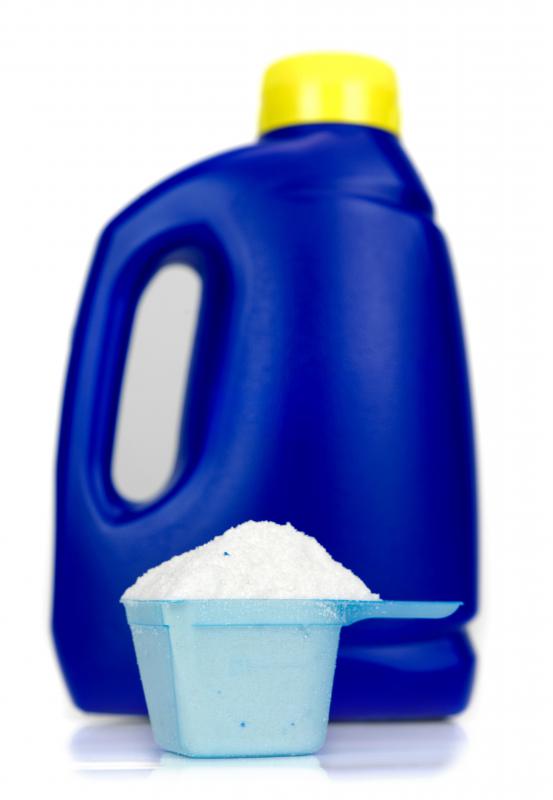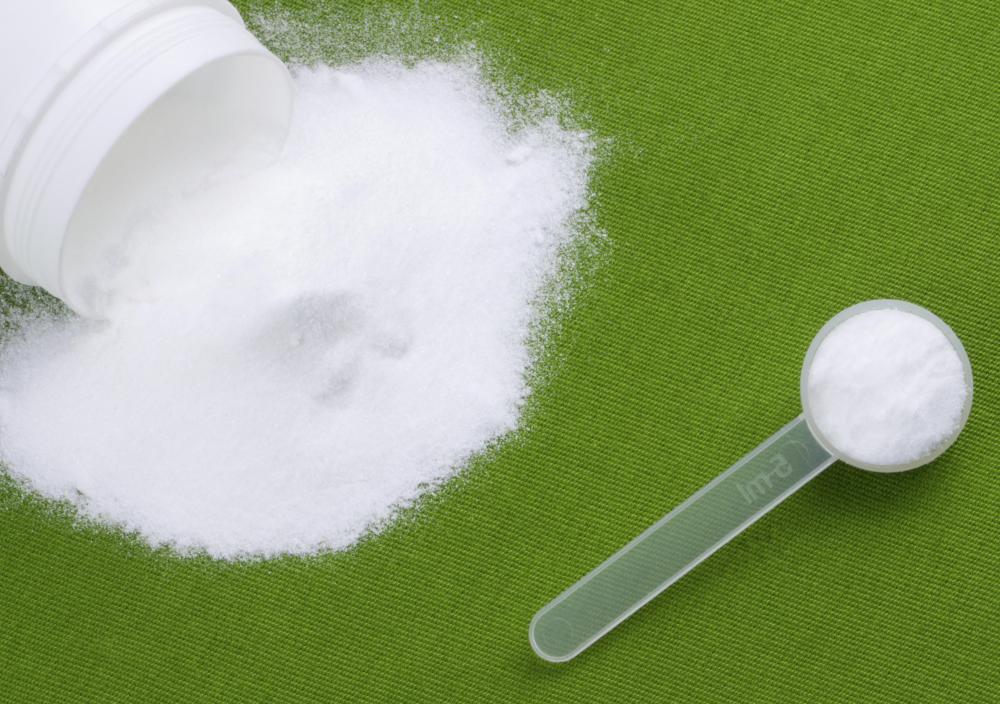At DelightedCooking, we're committed to delivering accurate, trustworthy information. Our expert-authored content is rigorously fact-checked and sourced from credible authorities. Discover how we uphold the highest standards in providing you with reliable knowledge.
What is Citric Salt?
Citric salt is actually an acid, not salt as cooks conventionally think of it. It is an acidic substance commonly found in citrus fruits which is added to foods to make them more tart and sour tasting. Other industries also use citric salt, which pops up as a stop bath in photography, an additive in hair products, and as a water softener. Many grocery stores sell this salt, usually in the spices or in the kosher foods section. It may also be labeled as sour salt or citric acid.
Citric acid was first discovered in acidic fruits in at least the 1300s, and it was isolated by the 1700s. The substance turns into a white crystalline powder when dried, and it does not just appear in citrus fruits. In fact, the vast majority of modern citric acid is created through fermentation, usually by growing bacteria on sucrose, producing citric acid as a byproduct. Since it was first identified in citrus fruits, citric acid continues to carry the “citric” name.

When used in cooking, this salt can completely change the flavor of a food. Cooks who are not familiar with it should use citric salt sparingly, since it can ruin a dish if used to excess. A few grains can be used as a substitute for citrus juice in a wide range of foods, to achieve a desired tart flavor. Some cooks temper the sourness with sugar, especially in Asian dishes. It is also used in food preservation and canning, as citric salt makes a great preservative.

Since the powdered substance available in supermarkets is a concentrate, it can irritate bare skin or mucous membranes. Care should be taken when handling it, although it is perfectly safe to consume when dissolved in food. A small number of people are sensitive to citric salt, especially in large concentrations, and they may want to avoid it when possible. Excessive consumption has also been shown to be harmful to the enamel of the teeth, as the acid can get corrosive.

There are also uses for this acid around the house. It can be used dissolved in water as a cleaner, and it is especially good at removing hard water stains from sinks and tableware. If hard water is an issue, citric salt can also be added to loads of laundry so that the detergent will foam properly, assuming that the detergent does not already contain citric salt.
AS FEATURED ON:
AS FEATURED ON:













Discussion Comments
All very interesting but the question to be answered is "what is citric acid". That question was not answered by any of the material you presented.
If you're allergic to citrus you most likely will be allergic to citric acid and citric salt..Try using a little vinegar, flavored or cider type. I do that with apple pies, as I'm also allergic to anything citrus based or containing citric acid or citric salt. If you also have a contact allergy to citrus, check your shampoo, cream rinse and moisturizers for it..You don't want the resulting dermatitis this may cause..
i have an allergy to citrus and i am looking for a substitute for lemon juice -peel in cooking recipes
can anyone help please?
Post your comments